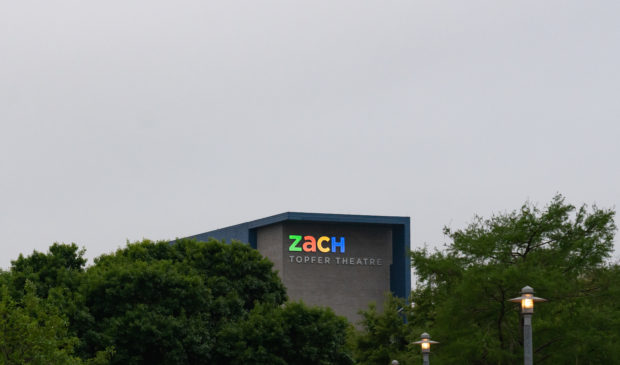City moving toward greater scrutiny, and possible rent hikes, on nonprofit leases
Thursday, July 18, 2019 by
Chad Swiatecki Nonprofit organizations operating on city properties will likely be expected to put a dollar value on the services they provide to the community, and could face higher rents after years of lease agreements at far below market rate.
In May, the Office of the City Auditor found that the city’s leasing practices in general lacked oversight and the needed structure to ensure compliance, with leases given to nonprofit groups called out as an area needing greater scrutiny.
Currently the city has agreements with 18 nonprofit groups that operate on city property. Twelve of those groups either have no lease fee or pay the city $1 per year as an acknowledgement of the services and cultural value they provide to the community. Those groups are: Zach Scott Theatre; Capitol City Trap and Skeet Club; Blackland Community Development Corp.; Austin Free-Net; Austin Yellow Bike Project; Minorities for Equality in Employment, Education, Liberty and Justice; Planned Parenthood; Junior Achievement of Central Texas; TreeFolks; Austin Youth River Watch; Austin/Travis County Integral Care and Capital City African American Chamber of Commerce.
The Office of Real Estate Services has committed to establishing a new policy for structuring leases with nonprofit groups by the end of next year. That could mean an increase in rental fees for some groups and is likely to bring greater scrutiny of all groups, with a cost-benefit analysis performed to show that the city isn’t giving away resources to the groups.
The real estate office is currently establishing the roles and responsibilities all city departments will have as leasing policies in general are improved, with a framework expected to be established by this October.
Alex Gale, interim officer for the real estate department, said the city auditor’s report emphasized changes that were already in the early stages, and said nonprofits will need to demonstrate in a yearly or semiannual audit that the services they offer merit the favorable terms of the lease the city has granted.
“We want to do everything we can as the asset manager of the city, and feel like we’ve gone through a good process to understand that the nonprofit is willing to say what they’re able to do,” he said. “With that we’ll be sure the nonprofit is aware that we’ll be needing to audit them, if not annually then semiannually, so they know we’ll have to have terms in that lease or increase the lease if terms have not been met.”
The attention being paid to the city’s leasing practices with nonprofit groups was part of the discussion at a recent meeting of the city’s Music Commission during a presentation on how to structure deals with nonprofit arts groups angling to receive some of the $12 million in bond money for creative spaces.
Gale said the city is unlikely to renegotiate existing leases with nonprofit groups, but future agreements are unlikely to be given at extreme discounts unless City Council weighs in. He said the state hasn’t given any direction or ultimatum to the city on how it handles its leasing practices for nonprofit groups, but recent legislative action has brought attention to the city’s lease deal with Planned Parenthood.
“I don’t know if we’ll be charging market value but it will be more than the nominal one dollar a year. We’ll come up with what the market value is, see what the cost-benefit analysis is on what the nonprofit will be providing and come with a recommendation to Council,” he said. “I assume the majority of nonprofits will argue they’re providing enough benefit to not be charged that amount, but ultimately it will be Council’s decision on what the amount comes to.”
Anna-Marie Mackey, operations director of TreeFolks, said the group’s $1 per year lease for a quarter-acre of Austin Water property in Del Valle provides the office space and growing and storage space to distribute more than 200,000 saplings and young trees into the community each year for free.
TreeFolks’ lease runs until 2031, so there’s little chance of a rent shock in the near future, and Mackey said the group would be able to comply with greater oversight from the city because of the financial information it already provides for grant applications and other contributions. The group has a $1.6 million annual budget.
“It would be a good step for everyone to understand the scrutiny they have to perform, especially with affordability and overall housing availability becoming an issue all over the place,” she said. “It makes sense that they’d need to see what groups are doing, and it’s like any funding source where we have to show what we’re doing with what we’re being given.”
Photo by Tony Webster made available through a Creative Commons license.
The Austin Monitor’s work is made possible by donations from the community. Though our reporting covers donors from time to time, we are careful to keep business and editorial efforts separate while maintaining transparency. A complete list of donors is available here, and our code of ethics is explained here.
You're a community leader
And we’re honored you look to us for serious, in-depth news. You know a strong community needs local and dedicated watchdog reporting. We’re here for you and that won’t change. Now will you take the powerful next step and support our nonprofit news organization?



